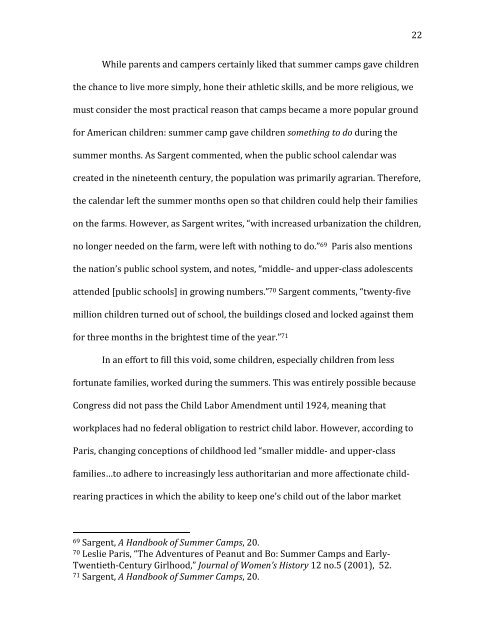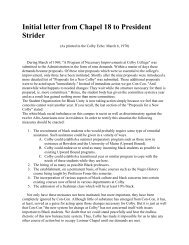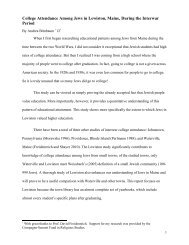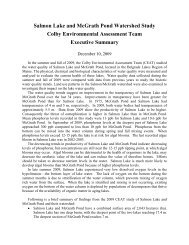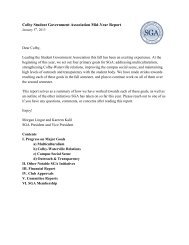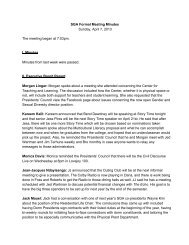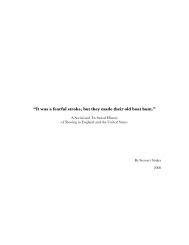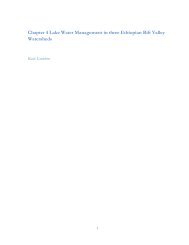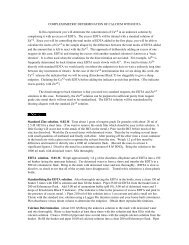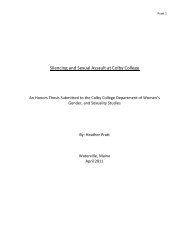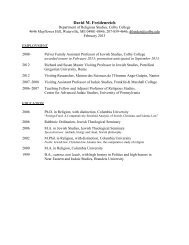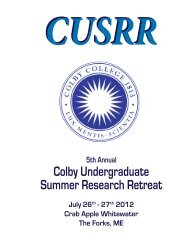The New Promised Land: Maine's Summer Camps for Jewish Youth ...
The New Promised Land: Maine's Summer Camps for Jewish Youth ...
The New Promised Land: Maine's Summer Camps for Jewish Youth ...
Create successful ePaper yourself
Turn your PDF publications into a flip-book with our unique Google optimized e-Paper software.
While parents and campers certainly liked that summer camps gave children<br />
the chance to live more simply, hone their athletic skills, and be more religious, we<br />
must consider the most practical reason that camps became a more popular ground<br />
<strong>for</strong> American children: summer camp gave children something to do during the<br />
summer months. As Sargent commented, when the public school calendar was<br />
created in the nineteenth century, the population was primarily agrarian. <strong>The</strong>re<strong>for</strong>e,<br />
the calendar left the summer months open so that children could help their families<br />
on the farms. However, as Sargent writes, “with increased urbanization the children,<br />
no longer needed on the farm, were left with nothing to do.” 69 Paris also mentions<br />
the nation’s public school system, and notes, “middle- and upper-class adolescents<br />
attended [public schools] in growing numbers.” 70 Sargent comments, “twenty-five<br />
million children turned out of school, the buildings closed and locked against them<br />
<strong>for</strong> three months in the brightest time of the year.” 71<br />
In an ef<strong>for</strong>t to fill this void, some children, especially children from less<br />
<strong>for</strong>tunate families, worked during the summers. This was entirely possible because<br />
Congress did not pass the Child Labor Amendment until 1924, meaning that<br />
workplaces had no federal obligation to restrict child labor. However, according to<br />
Paris, changing conceptions of childhood led “smaller middle- and upper-class<br />
families…to adhere to increasingly less authoritarian and more affectionate child-<br />
rearing practices in which the ability to keep one’s child out of the labor market<br />
69 Sargent, A Handbook of <strong>Summer</strong> <strong>Camps</strong>, 20.<br />
70 Leslie Paris, “<strong>The</strong> Adventures of Peanut and Bo: <strong>Summer</strong> <strong>Camps</strong> and Early-<br />
Twentieth-Century Girlhood,” Journal of Women’s History 12 no.5 (2001), 52.<br />
71 Sargent, A Handbook of <strong>Summer</strong> <strong>Camps</strong>, 20.<br />
22


